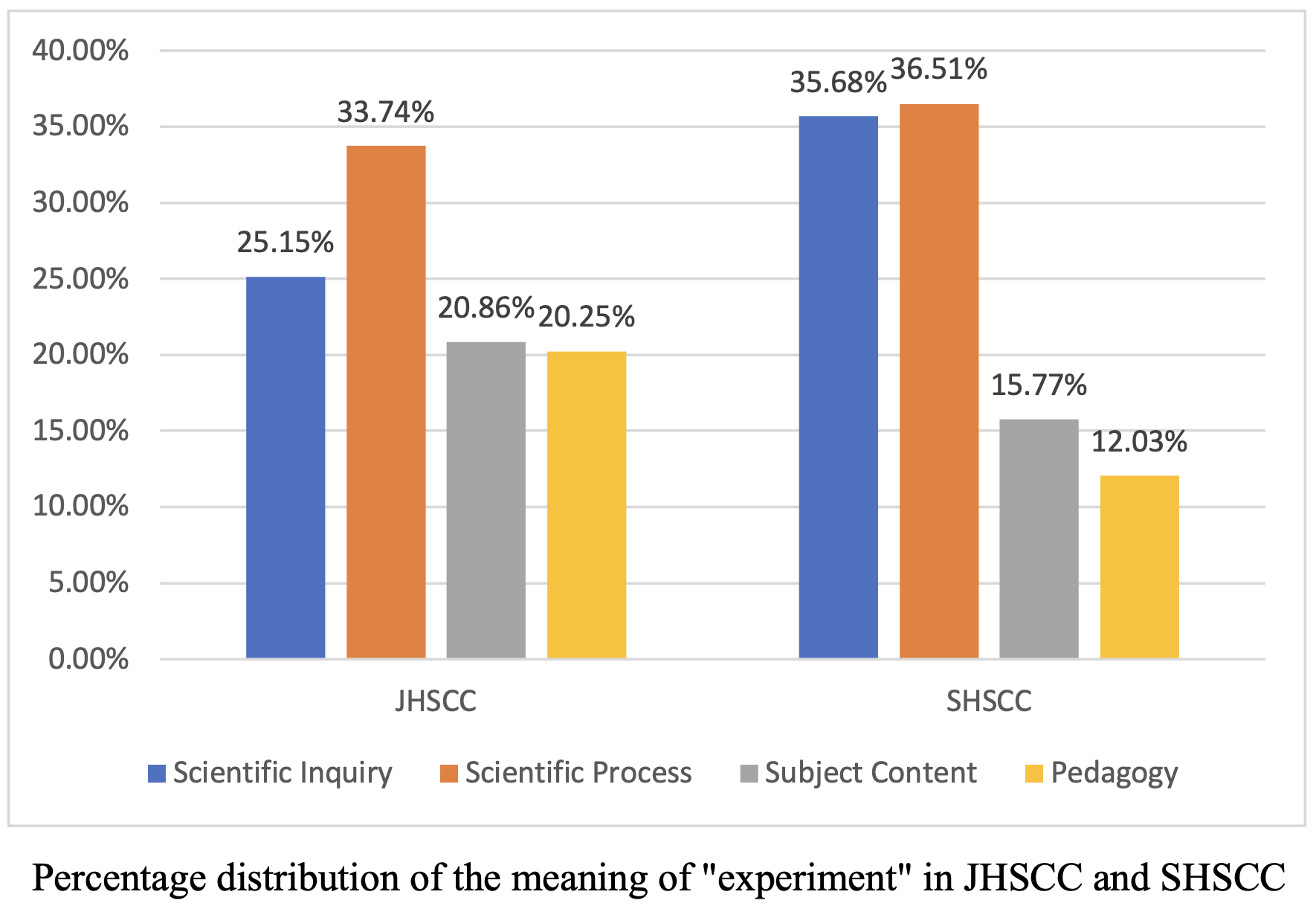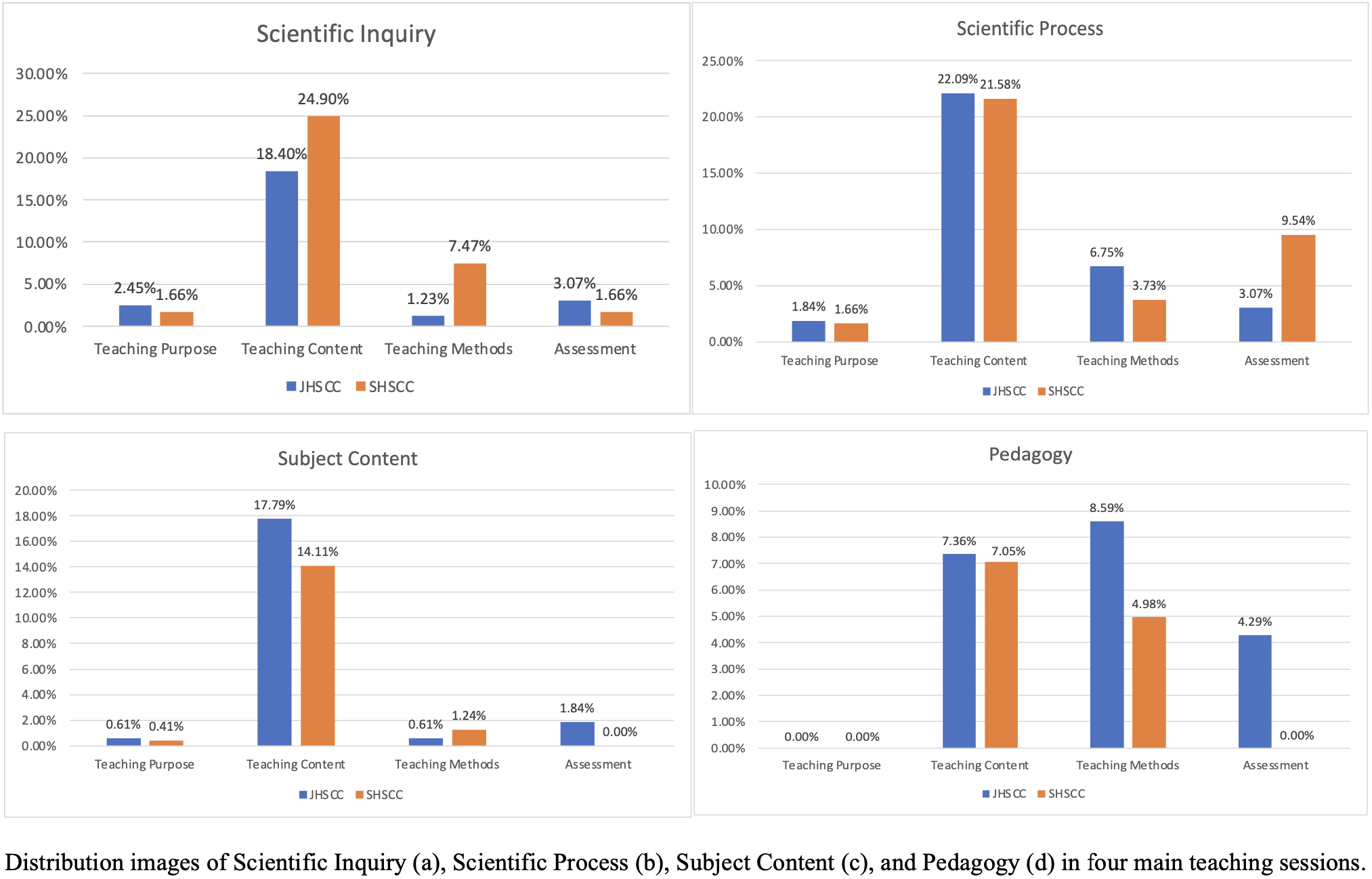The Meaning of “Experiment” in the Chemistry Curriculum Standards in China - A Content Analysis
This research project has been completed with related paper “The Meaning of ‘Experiment’ in Junior and Senior High School Chemistry Curriculum Standards in China A Content Analysis” in revision.
The term “experiment” appears a lot in the field of science education. It can be used to refer to all practical activities involved in the science curriculum (Millar, 2015). It is an integral part of the science curriculum in schools, which is often regarded as the most attractive core activity in the school science teaching process (Abrahams, 2009) and can be well motivated for students’ situational interests. Wei& Chen (2020) proposed that “experiment” in practical work can be considered to hold four meanings: (1) scientific process, (2) scientific inquiry, (3) subject content, and (4) pedagogy. So helping secondary education science teachers understand the connotations of “experiment” is of great importance in science education.
The purpose of this study is to establish the meaning of “experiment”, explore the meaning formulation and frequency distribution of “experiment” in the latest curriculum standards promulgated by the Ministry of Education of China, clarify the disciplinary specificity and stage specificity of chemistry practical work, and ultimately create ideal models of the “experiment” emphasis meaning of secondary education chemistry practical work, which aims to achieve the final goal of guiding schools and secondary education chemistry teachers to better select teaching contents and choose driving strategies in the process of implementing practical work.
This study mainly centered on the two research questions and the results were obtained based on our content analysis.
- RQ 1: What are the differences in the distribution of the four meanings of “experiment” in the chemistry curriculum standards of junior high school (JHSCC) and senior high school (SHSCC)?

- RQ 2: What are the differences in the distribution of the four meanings of “experiment” in each teaching session between the junior high school (JHSCC) and high school (SHSCC) chemistry curriculum standards?

Based on the analysis, it is clear that a large portion of the interpretation of the meaning of “ experiment” for pedagogy is weakened at the senior high school stage. This represents an important difference and development in chemistry practical work from junior high school to senior high school. That is, corresponding to the shift in stage from junior high school to senior high school, there is a gradual shift in the center of practical work, which changes from emphasizing pedagogy in teachers’ teaching process to a gradual weakening of the teacher’s role in practical activities. Such a shift further emphasizes the spontaneity and autonomy of students in practical activities and advocates that teachers return ownership and leadership in experiments to students, develop and construct their ability to work independently.
The project is implemented under the advice of Prof. Bing WEI. The research project has been completed, and the related paper “The Meaning of ‘Experiment’ in Junior and Senior High School Chemistry Curriculum Standards in China: A Content Analysis” is in the revision process.